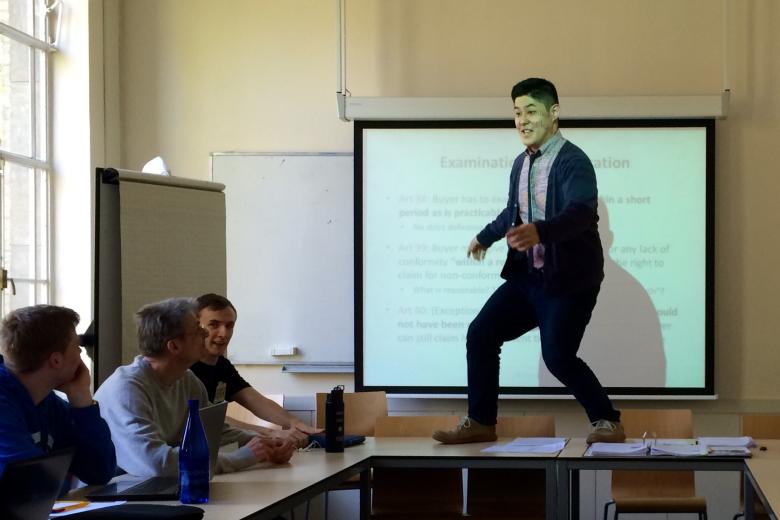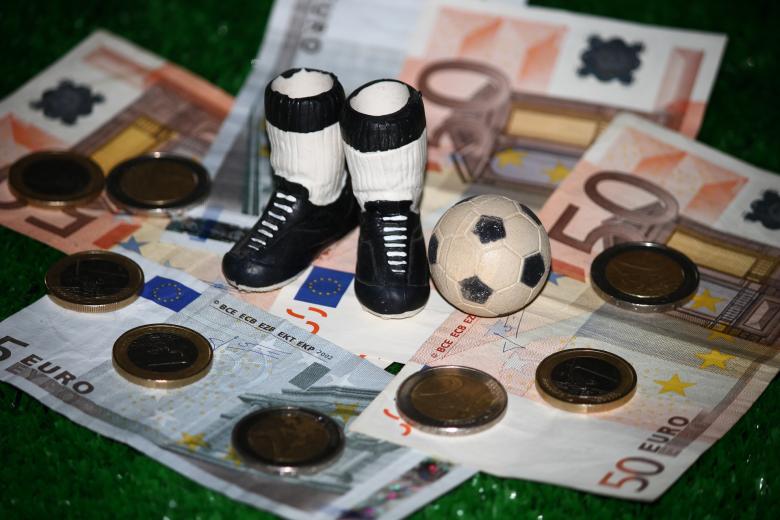Corruptie en aantasting van de liefde voor voetbal (deel 1 of 6)
Hoeveel invloed kan een instituut als de EU uitoefenen om voetbal te reguleren? Financieel fair play & transparantie van eigendom bij voetbalclubs in Europa. (Alleen beschikbaar in het Engels)
Football (a.k.a. soccer), or more colloquially referred to as “the beautiful game,” is - hands down - one of the most popular sports in the world. Behind the well-lit stadiums, carefully manicured pitches, and the idolized players that play on them, there is a darker side to this dazzling façade. The business end of operating this cherished game is often anything but glamourous: It is a cut-throat world where business interests - some less scrupulous than others - are corrupting and eroding the purity and the beauty of our adored pastime.
The international governing body for football, FIFA, is no stranger to allegations of corruption and muddy dealings either. FIFA has been on the receiving end of bribery accusations and claims of labor exploitations, most recently with their selection of Russia and Qatar as the host countries for the next two World Cups. In light of these “scandalous” selections, international NGOs like Amnesty International and Transparency International have gone to extreme lengths to prove the complicity of FIFA in perpetrating human rights violations in places like Qatar and accusing its executive committee of being susceptible to bribery.
In addition to the various NGOs, there is an increasing awareness amongst a certain portion of the concerned public that something must be done to clean up the business end of football. To address this concern, the European Commission’s working group on good governance is nudging FIFA to reform its operations. Moreover, the European Commission is aiming to ensure that proper structure is in place to maintain transparency and fairness for all athletic organizations, dividing its priorities into four fields of action: 1) good governance, 2) match fixing, 3) free movement of sports people, and 4) transfers and sports agents. In addition, the European Union - in the Lisbon Treaty - not only mentioned the importance of promoting fairness in sporting competitions and cooperation between various sporting bodies, but it went as far as to demand that the European Parliament and the Council adopt its recommendations and to introduce incentive measures in furtherance of its stated aims.
NGOs like Transparency International, however, remain unconvinced that these measures will actually make a meaningful impact and suggest that our collective enthusiasm for what institutions like the EU can do to clean up football be curbed accordingly. This skepticism could be somewhat justified considering that there is a large percentage of fans that are either oblivious to these problems, or choose to remain willfully ignorant about the questionable dealings of their favorite clubs, so long as their team is winning.
Furthermore, bearing in mind the powerful influences, not just of FIFA, but that of the various continental confederations (e.g. UEFA, CONCACAF, etc.) and the national football associations (e.g. FA, KNVB, etc.) that essentially control the game and the business end of football, it remains to be seen just how much influence an institution like the EU can exert to regulating football (especially considering that it lacks any direct legislative competences).
Bearing this fragmented reality in mind, this contribution will present case studies from Spain, England, Germany, and the Netherlands to highlight some of the measures that the various European football associations are implementing at the national level to ensure financial fair play and to increase transparency of club ownership and governance structures. The main aim of these case studies is not to provide an in-depth overview of these two issues across various jurisdictions, but merely to offer an introductory insight and to increase our collective awareness to these currently under-regulated problems.
The 4 case studies were written as part of the Premium Project on “Corruption in Football.” The Premium Team consists of Teresa Vazquez Lopez (Spain Report), Aurelie Wertz (England Report), Hanna Harnisch (Germany Report), and Marije Ariëns (the Netherlands Report).
Written by Teresa Vazquez Lopez and Mark Kawakami, published on Law Blogs Maastricht
Read the 2nd blog Spain report
Read the 3rd blog England report
Read the 4th blog Germany report
Read the 5th blog Netherlands report
Read the 6th blog Preliminary conclusion
M.T. Kawakami
Teacher. Lawyer. Failed Comedian. Weekend Researcher.

-
Voorlopige conclusie, corruptie en aantasting van de liefde voor voetbal
Voetbal te koop: wat is het probleem en wat zijn de oplossingen? Lees onze eerdere verslagen om het te achterhalen. (Spanje, Engeland, Duitsland en Nederland). (Alleen beschikbaar in het Engels)
